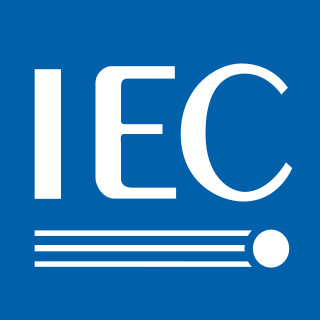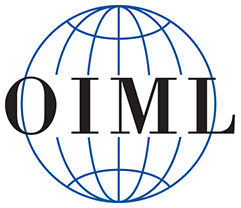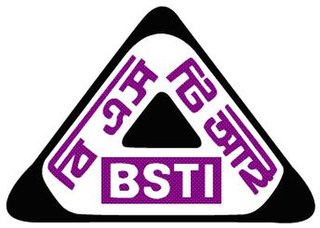The National Quality Management Commission, formerly the State Administration of Quality Management of the Democratic People's Republic of Korea (SAQM) is the North Korean standards organization. [1] [2] It oversees standards and metrology, including application of both the metric system and traditional Korean units, in accordance with the 1993 Law on Metrology. [3] It is located at 1 Inhung-Dong in Moranbong District, Pyongyang. [4]
The commission operates under the Academy of Sciences of the Democratic People's Republic of Korea. [1] Both are cabinet-level institutions. As of January 2020 [update] , the commission is led by Ri Chol-jin. [2]
The commission is charged with elaborating and realizing state metrological regulation and policy; defining, registering, and maintaining measurement standards and devices; accrediting the North Korean institution of self-calibration; organizing and conducting inspections and supervision to ensure proper use of approved measurements; approving guidelines for measurement calibration within North Korea. [4]
The Committee for Standardization of the Democratic People's Republic of Korea (CSK) represents the country in international standardization organizations, [1] such as International Organization for Standardization (ISO). [5]
The National Quality Management Commission has supervision over the Central Institute of Metrology (CIM), located at Songsin Dong 1 in Sadong District, Pyongyang. [6] The CIM maintains custody over North Korea's national standards. [6] It also calibrates high-precision reference standards for provincial verification offices and other agencies; performs research on metrology and its application within North Korea; and assists the SAQM with supervision over implementation of North Korean laws related to metrology. [4] [6]
The IEC National Committee of Democratic People's Republic of Korea under the National Quality Management Commission is a member of the International Electrotechnical Commission. [7]
The National Quality Management Commission has supervision over Territorial Institutions of Calibration which have similar responsibilities at a provincial level. [4]

The International Electrotechnical Commission is an international standards organization that prepares and publishes international standards for all electrical, electronic and related technologies – collectively known as "electrotechnology". IEC standards cover a vast range of technologies from power generation, transmission and distribution to home appliances and office equipment, semiconductors, fibre optics, batteries, solar energy, nanotechnology and marine energy as well as many others. The IEC also manages four global conformity assessment systems that certify weather equipment, system or components conform to its international standards.
In measurement technology and metrology, calibration is the comparison of measurement values delivered by a device under test with those of a calibration standard of known accuracy. Such a standard could be another measurement device of known accuracy, a device generating the quantity to be measured such as a voltage, a sound tone, or a physical artifact, such as a meter ruler.

Metrology is the scientific study of measurement. It establishes a common understanding of units, crucial in linking human activities. Modern metrology has its roots in the French Revolution's political motivation to standardise units in France when a length standard taken from a natural source was proposed. This led to the creation of the decimal-based metric system in 1795, establishing a set of standards for other types of measurements. Several other countries adopted the metric system between 1795 and 1875; to ensure conformity between the countries, the Bureau International des Poids et Mesures (BIPM) was established by the Metre Convention. This has evolved into the International System of Units (SI) as a result of a resolution at the 11th General Conference on Weights and Measures (CGPM) in 1960.

The International Organization of Legal Metrology, is an intergovernmental organisation that was created in 1955 to promote the global harmonisation of the legal metrology procedures that underpin and facilitate international trade.
Accreditation is the independent, third-party evaluation of a conformity assessment body against recognised standards, conveying formal demonstration of its impartiality and competence to carry out specific conformity assessment tasks.
ISO/IEC 17025General requirements for the competence of testing and calibration laboratories is the main ISO/IEC standard used by testing and calibration laboratories. In most countries, ISO/IEC 17025 is the standard for which most labs must hold accreditation in order to be deemed technically competent. In many cases, suppliers and regulatory authorities will not accept test or calibration results from a lab that is not accredited. Originally known as ISO/IEC Guide 25, ISO/IEC 17025 was initially issued by ISO/IEC in 1999. There are many commonalities with the ISO 9000 standard, but ISO/IEC 17025 is more specific in requirements for competence and applies directly to those organizations that produce testing and calibration results and is based on somewhat more technical principles. Laboratories use ISO/IEC 17025 to implement a quality system aimed at improving their ability to consistently produce valid results. It is also the basis for accreditation from an accreditation body.

Certified reference materials (CRMs) are 'controls' or standards used to check the quality and metrological traceability of products, to validate analytical measurement methods, or for the calibration of instruments. A certified reference material is a particular form of measurement standard.
The South African National Accreditation System (SANAS) is the official accreditation body for South Africa. Founded in 1996, SANAS is headquartered in Pretoria, South Africa. SANAS accreditation certificates are a formal recognition by the Government of South Africa that an organisation is competent to perform specific tasks.
The Standardization Administration of China is the standards organization authorized by the State Council of China to exercise administrative responsibilities by undertaking unified management, supervision and overall coordination of standardization work in China. The SAC represents China within the International Organization for Standardization (ISO), the International Electrotechnical Commission (IEC) and other international and regional standardization organizations; the SAC is responsible for organizing the activities of the Chinese National Committee for ISO and IEC; the SAC approves and organizes the implementation of international cooperation and the exchange of projects on standardization.
ISO 10012:2003, Measurement management systems - Requirements for measurement processes and measuring equipment is the ISO standard that specifies generic requirements and provides guidance for the management of measurement processes and metrological confirmation of measuring equipment used to support and demonstrate compliance with metrological requirements. It specifies quality management requirements of a measurement management system that can be used by an organization performing measurements as part of the overall management system, and to ensure metrological requirements are met.

In metrology, a standard is an object, system, or experiment that bears a defined relationship to a unit of measurement of a physical quantity. Standards are the fundamental reference for a system of weights and measures, against which all other measuring devices are compared. Historical standards for length, volume, and mass were defined by many different authorities, which resulted in confusion and inaccuracy of measurements. Modern measurements are defined in relationship to internationally standardized reference objects, which are used under carefully controlled laboratory conditions to define the units of length, mass, electrical potential, and other physical quantities.

The State Committee on Standardization, Metrology and Patents of Azerbaijan Republic is a governmental agency within the Cabinet of Azerbaijan in charge of Azerbaijani technical regulations, metrology, valuation of technical compliance, accreditation, quality standardsin Azerbaijan Republic. The committee is headed by Ramiz Hasanov.

Federal Technical Regulation and Metrology Agency (Rosstandart) is the Russian federal government agency that serves as a national standardization body of the Russian Federation. It was previously known as Gosstandart. It is subordinated to the Ministry of Industry and Trade.
The National Standardization Agency of Indonesia is the International Organization for Standardization (ISO) member body for Indonesia. BSN is a non-ministerial Indonesian government agency with the main task of carrying out governmental tasks in the field of standardization and conformity assessment in Indonesia.
ISO/IEC JTC 1/SC 28 Office equipment is a standardization subcommittee of the Joint Technical Committee ISO/IEC JTC 1 of the International Organization for Standardization (ISO) and the International Electrotechnical Commission (IEC), that develops and facilitates international standards, technical reports, and technical specifications within the field of office equipment and products, and systems composed of combinations of office equipment. The group's main focus lies within the area of printers and copiers. The international secretariat of ISO/IEC JTC 1/SC 28 is the Japanese Industrial Standards Committee (JISC) located in Japan.

Bangladesh Standards and Testing Institution or BSTI is an autonomous government body under the Ministry of Industries constituted for the purpose of controlling the standards of services and goods, and introduction of the international system of units of weights and measures in Bangladesh. This institution is a Key Performance Indicator (KPI) of the Government of Bangladesh.
Ra Un-sim, Hero of Labor, is a North Korean female international football player.
Korean units of measurement, called cheokgwan-beop or cheokgeun-beop in Korean, is the traditional system of measurement used by the people of the Korean peninsula. It is largely based on the Chinese system, with influence from Japanese standards imposed following its annexation of the Korean Empire in 1910. Both North and South Korea currently employ the metric system. Since 2007, South Korea has criminalized the use of Korean units in commercial contexts but informal use continues, especially of the pyeong as a measure of residential and commercial floorspace. North Korea continues to use the traditional units, although their standards are now derived from metric conversions.
Smart Metrology is the modern approach to industrial metrology. The name has been introduced by Jean-Michel Pou and Laurent Leblond, a French metrologists and a French statistician, in their book "La Smart Metrology: De la métrologie des instruments... à la métrologie des décisions". and has been immediately adopted by Deltamu, a French company providing services in the field of industrial metrology, to promote its innovative vision of metrology.